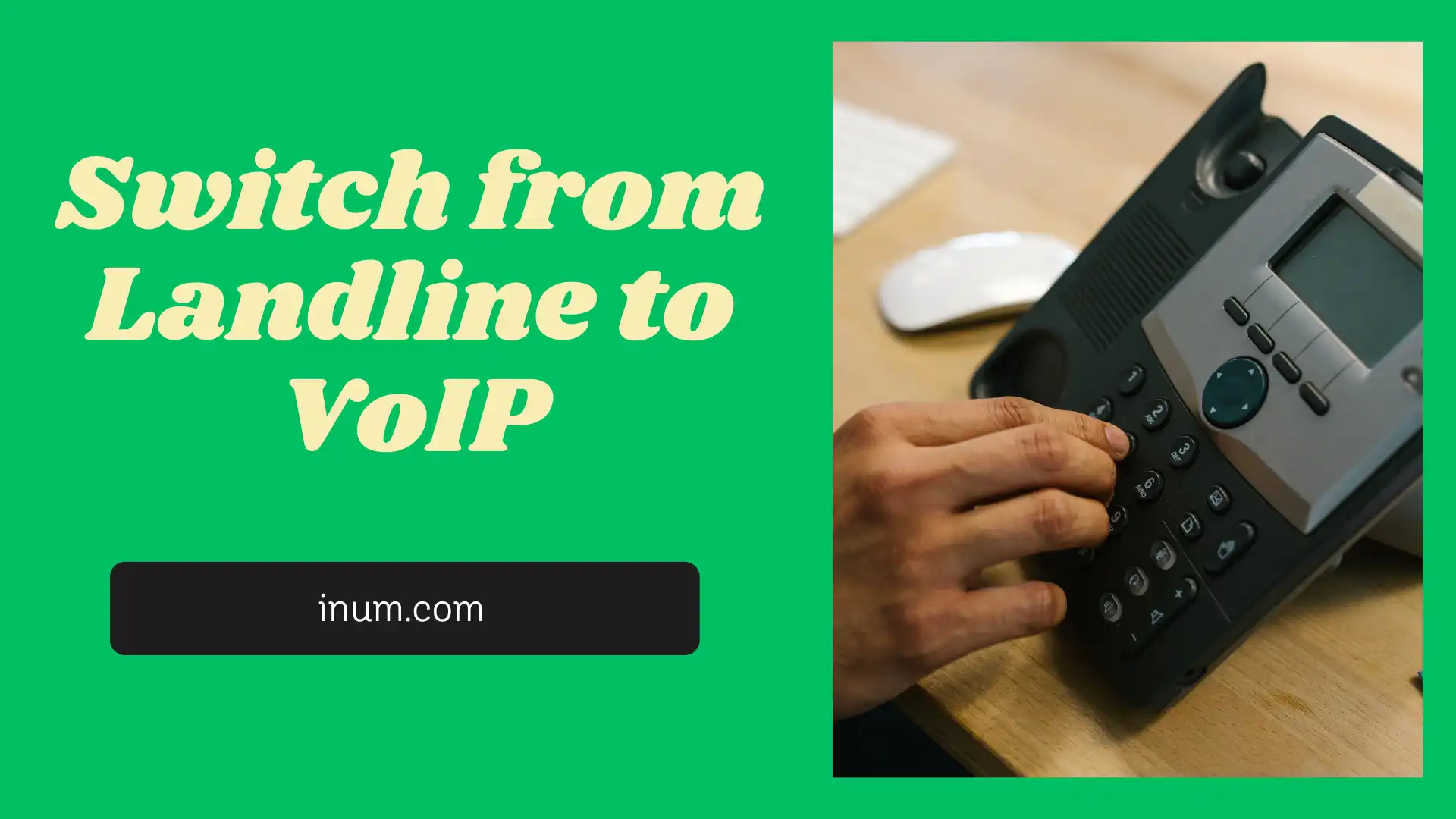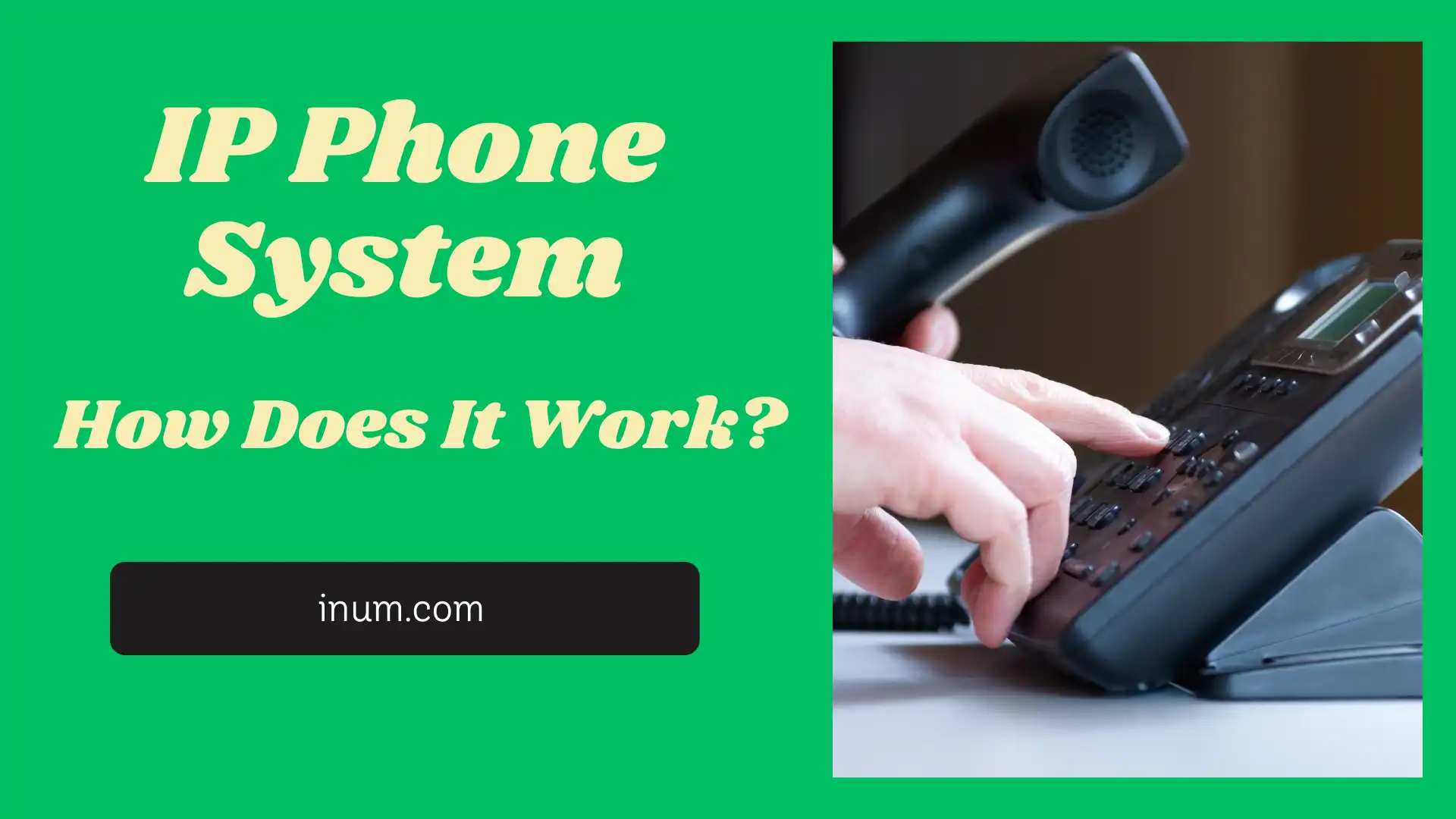You may not be enjoying the flexibility and cost savings that come with enterprise VoIP phone systems in case you are still using traditional landlines to manage your business.
This is a large reason why more and more companies are abandoning landlines and desk phones and switching to VoIP, beginning with the reality that cloud computing is what enables you and your staff to do work anywhere you have access to the Internet and finishing with a significantly lower monthly payment.
The following blog will discuss why switching to VoIP can save your business money.
What is VoIP?
VOIP means Voice over Internet Protocol (also known as Voice over IP) and is the technology that enables you to make and receive phone calls and SMS/MMS text messaging across the Internet.
Traditional telephony transmits calls over copper wires owned by your phone company-VoIP transmits calls over a broadband Internet connection.
This implies that you can make phone calls directly out of your computer or cell phone with an ethernet cable or a Wi-Fi connection, no telephone networks required.
How Switching to VoIP Can Save Your Business Money?
Here are the ways to save your money by switching to VoIP :
i. Long-Term ROI (Return on Investment)
VoIP technology is a long-term investment with a high ROI since it offers affordable, reliable, and scalable solutions to communication. When the switch is made, businesses that made the switch can often recover their initial investment in the first year because of continued savings in monthly expenses, maintenance, and productivity.
With the removal of expensive hardware and maintenance, businesses enjoy steady long-term savings that are added to the bottom line.
- Actual VoIP Savings: To get an idea of how much a business can save when switching to VoIP, take an example of a mid-sized organization, with 50 employees relying on traditional phone lines. The following is a breakdown of possible savings:
- Monthly Fees: Phone line and VoIP are approximately 25 and 50 dollars a month respectively. Annual savings: $15,000.
- Hardware and Configuration: The cost of an ordinary PBX system installation can exceed 10,000. VoIP conversion has very low equipment and installation costs. Initial savings will be from $8,000 to $10,000.
- Maintenance and IT Support: The average maintenance cost on traditional systems may be up to $5,000 every year. In VoIP, this cost has been removed or minimized into small support. Annual savings: $3,500.
The costs related to VoIP may save this business 28,500 dollars in the first year of operation and this figure will only grow every year so long as the company continues using VoIP.
ii. Reduced Monthly Phone Bills
The decrease in monthly phone bills is one of the largest cost saving advantages of VoIP technology. The conventional telephone systems are characterized by high recurrent expenses, especially when the business requires more than one line or where business calls are frequent and extensive over long distances and international boundaries.
The way VoIP will decrease these monthly bills significantly is:
- Reduced Service Fees: Lots of VoIP companies also impose much lower monthly fees than the phone companies. VoIP service plans can begin as low as 15-30 per user in comparison to the more expensive monthly charges of a traditional business phone line.
- Include Long-Distance and International Calls: VoIP is an affordable option for companies that regularly need to contact clients or branches in other countries. The majority of VoIP operators also cover long distance and international calls in their packages or charge significantly lower rates as compared to the traditional carriers.
VoIP can save a company up to half or more of its monthly communication costs, depending upon the size of the business and call volume.
iii. Minimal Start-up Investment in Equipment
Old-fashioned phone systems can demand a lot of on-site hardware, such as big PBX boxes, landlines, and phones in each office.
These hardware expenses may be easy to multiply, particularly when expanding to support an expanding team. VoIP reduces these start-up costs in a number of ways:
- No Need to install a lot of Hardware: VoIP can be deployed on any device of interest (computers, smartphones and tablets) without a special phone system.
- Reduced Installation Costs: VoIP companies are charging low setup fees, which are even free in some cases, making the upfront cost of installing a conventional phone system less expensive.
- Scalability without extra hardware: VoIP systems can add lines with minimal or no hardware requirement, other than traditional systems which might require physical upgrades to increase line capacity.
In the case of companies transitioning off of a legacy phone system, switching to VoIP would cost a thousand dollars (or more) in setup fees and equipment costs alone.
iv. Maintenance and IT Support Savings
The cost of traditional phone systems also means that the company will have to continue maintaining them and frequently involves IT experts or outsourced personnel.
VoIP systems, on the other hand, are generally cloud-based and controlled by the service provider and require much less maintenance and IT resources.
- Less Maintenance Need: VoIP systems are hosted through the internet and therefore the work requirements to maintain the system is typically assigned to the provider and internal IT system becomes unnecessary.
- Automatic Software Updates: VoIP also implies that you no longer have to worry about updating any hardware or software since most providers do everything automatically, therefore, your system will always match the latest additions and patches.
- Lower Repair Fee: The hardware and the physical phone lines are prone to wear and tear, whereas the VoIP applications are on cloud installations, which are more reliable and less expensive to recover.
Businesses that utilize VoIP will save a good deal of their current IT costs due to low maintenance and repair costs.
v. Higher Productivity and Decreased Downtime
Time equals money and VoIP systems are created to help maximize productivity. In traditional phone systems, technical problems and downtime can interfere with business and cost valuable work hours.
VoIP systems, on the other hand, offer:
- Stability: VoIP systems tend to be more stable than traditional lines, particularly in combination with a high-speed internet connection. The majority of vendors are developing service level agreements (SLA) that guarantee uptimes and minimize interruptions.
- Integrated Communication Tools: VoIP is the act of integrating the communication tools that the employees already use, which are voice, video, messaging, etc. and combining all that in the same platform, therefore, makes the communication between the employees easier and ensures that the employees are always in touch with each other no matter where they are.
- Mobility and Remote Access: VoIP flexibility also offers the workers an opportunity to work from any place as long as they can access the internet, which diminishes their work stoppage, keeping them productive even when they are not in the office.
VoIP will help companies save money and time indirectly by cutting down the time of downtime and making teams effective, thus translating to productivity in the long run.
vi. Reduced Scaling and Expansion Cost
Business growth can be very costly in terms of purchasing new telephone lines or moving to bigger premises. VoIP is a very scalable technology that can easily add or remove lines without the need to upgrade to a costly infrastructure.
Some of the main ways in which VoIP can help save on expansion costs are:
- Add Lines Without Adding Hardware: VoIP enables you to add users without investing in new physical lines, which is perfect when your company has a seasonal variation or is growing at a very fast rate.
- No Relocation Expenses: VoIP uses internet connections to run the system therefore your company is able to move or create new office outlets without the cost and hassle associated with installing the traditional phone infrastructure.
- Remote Teams Cost-Effective: VoIP does not charge a higher price when used by a remote workforce, thereby enabling a company to grow without investing in extra office space or physical facilities.
These economies of scale advantages make VoIP especially beneficial to small businesses and start-ups that are looking to expand in the years to come.
Final Thoughts – VoIP ROI
VoIP conversion is a financial investment in cost-effective and modern communication that produces long-term and immediate financial gain. VoIP is also assisting companies to save on such issues as money and increase flexibility and quality of their communication by passing on lesser monthly bill, scalable infrastructure, and productivity.
No matter the scale of your business, switching to VoIP may save you a lot of money that will be reflected in the bottom line of your business.
In the case when companies choose VoIP, they do not merely modernize their phone infrastructure; they also enhance their communication possibilities and position themselves to expand even further in the future without investing much.
FAQs – VoIP ROI
Q1. How much will VoIP cost you to save?
The average business saves 50-75% by migrating to VoIP, when long-distance call savings and reduced maintenance costs are considered.
Q2. Does VoIP provide business security?
Yes, VoIP is extremely safe, and its encryption and backup systems secure sensitive information and provide the continuation of the business.
Q3. Is VoIP phone system applicable to small businesses?
Absolutely! VoIP is the most suitable to small companies since it is less costly, and can be expanded within a short period. It is also able to offer a range of capabilities at the non-expensive infrastructure investment cost.
Q4. How much time will it take to convert to VoIP?
VoIP transition is generally rapid and many companies have finished the switch within a week, again depending on the size of the team they have and the complexity of their installation.
Q5. What are the characteristics that I need in a VoIP system?
Find functions such as mobile app, call forwarding, CRM integration, and analytics to utilize your VoIP system.
Read More : What is A2P Calling? Why You Need Automated Voice
Read More : Calling Restrictions: What Does “Restricted Call” Mean on Your Phone?



